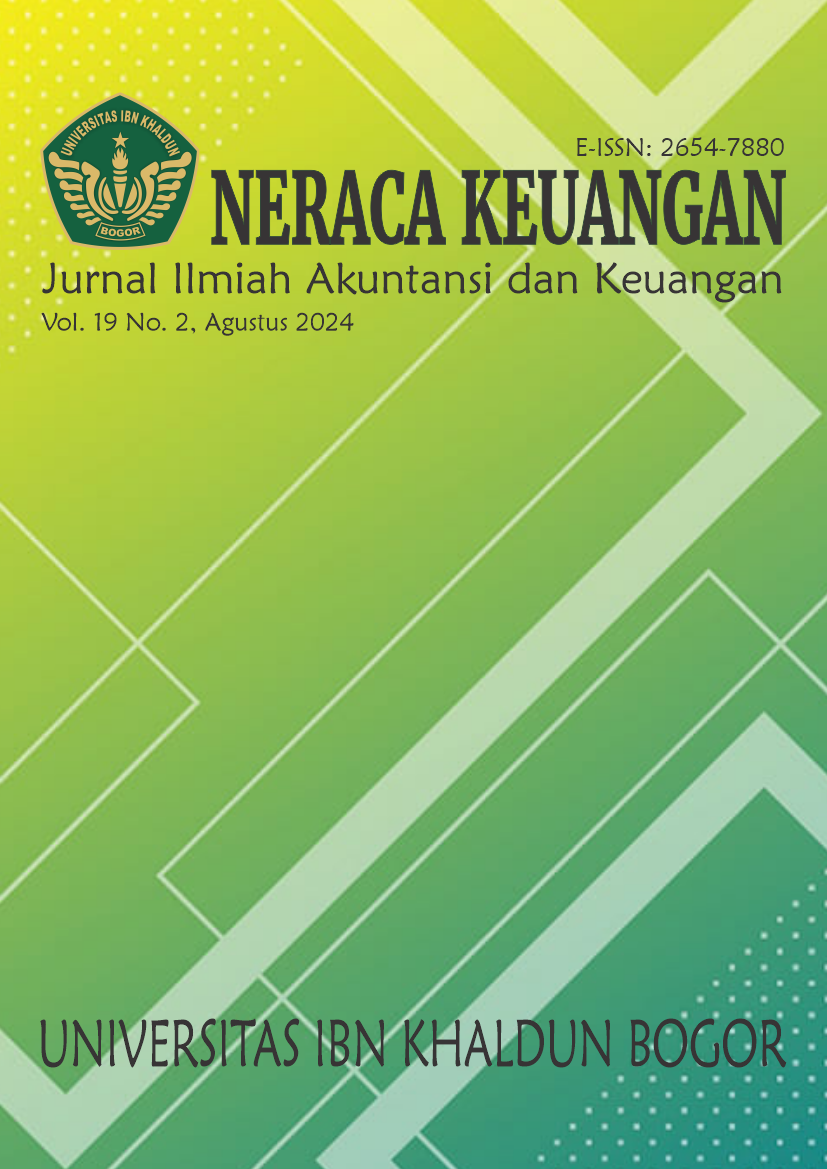The Influence of Financial Inclusion, Financial Literacy, and the Digital Economy on Micro, Smaall and Medium Enterprises (MSMEs) from an Islamic Economic Perspective (Case Study of Rantauprapat City, Labuhanbatu District)
DOI:
https://doi.org/10.32832/neraca.v19i2.16801Abstrak
The purpose of this study is to determine the influence of financial inclusion, financial literacy, and digital economy on micro, small and medium enterprises (MSMEs) from an Islamic economic perspective. This research data was obtained from a questionnaire distributed through google from. This research method is quantitative. In addition, this data analysis technique uses path analysis with SPSS 27.0 software. The results of this study use multiple linear analysis with data instrument tests in the form of validity and reliability tests. Classical assumption tests are data normality tests, multicollinearity tests, and heteroscedasticity tests. Finally, hypothesis tests are carried out in the form of partial tests, simultaneous tests and determination tests. The results showed that partially the variables of financial inclusion, financial literacy, and digital economy had a positive and significant effect on sharia MSMEs, namely sig. 0.001 < 0.05, and financial literacy variables 0.001<0.05, and digital economy 0.001<0.05. While simultaneously financial inclusion, financial literacy, and digital economy with a calculated F value greater than the F table (65.165>4.23) or significance value (0.001<0.05).





















